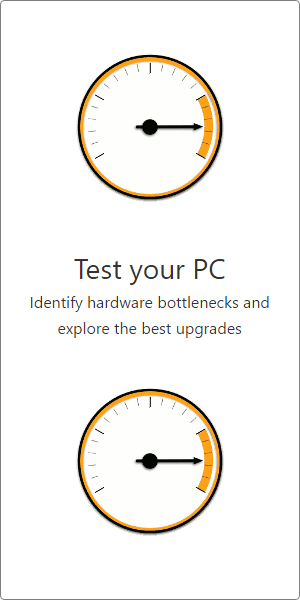Effective Speed
+10%
Poor: 76%
Great: 100%
SPEED RANK: 167th / 1468
Poor: 69%
Great: 89%
SPEED RANK: 244th / 1468
| Effective Speed
Effective CPU Speed |
88.4 % | Slightly faster effective speed. |
80.7 % |
Average Score
+2%
Overclocked Score
+5%
Value & Sentiment
+∞%
Nice To Haves
+60%
Conclusion
Average Bench 88.4%
Average Bench 80.7%
User Builds
746,287
3,902
Systems with these CPUs
Top Builds that include these CPUs
Frequently Asked Questions
Processors FAQ
ALL FAQs »

 CPU
CPU
